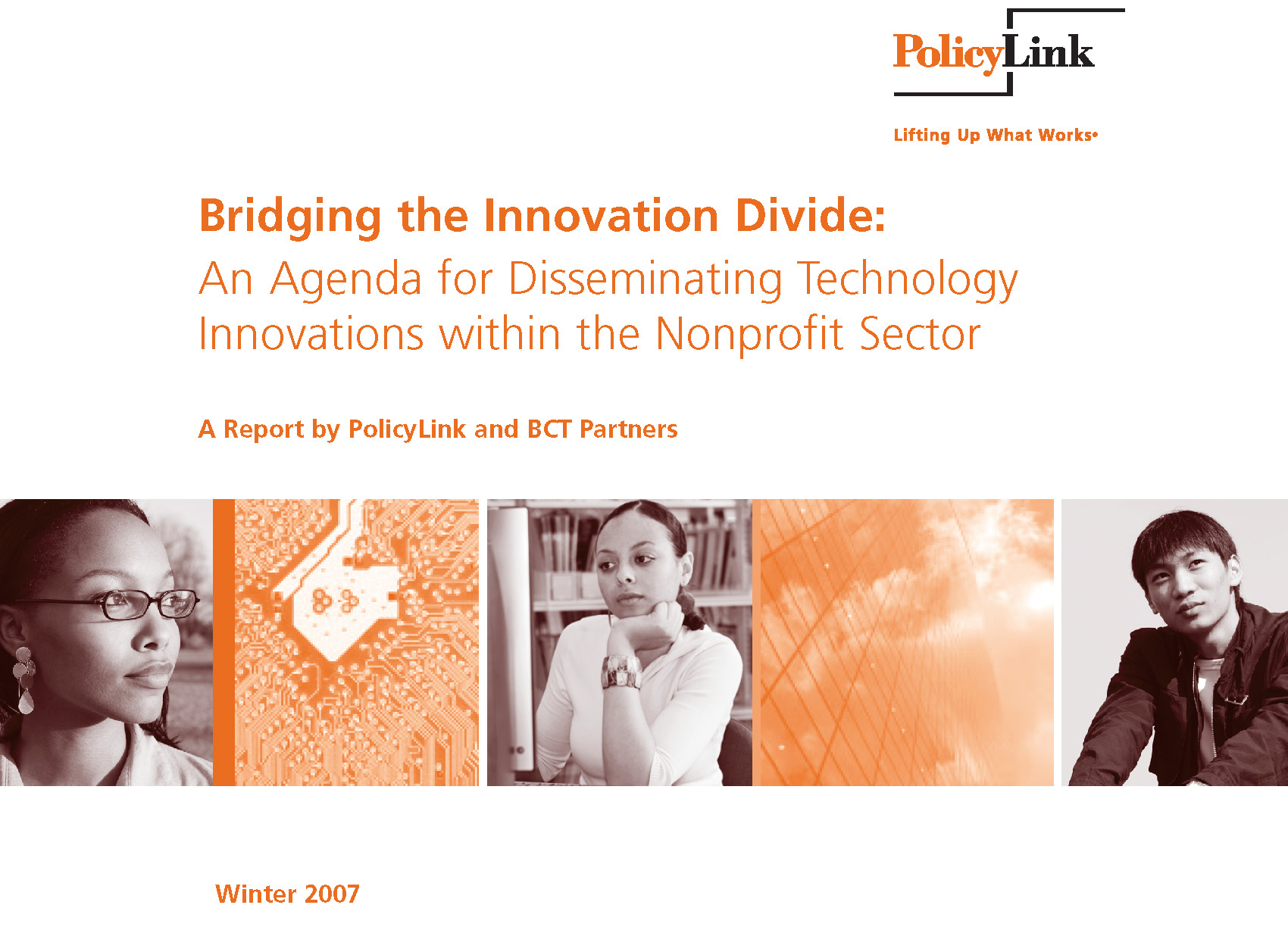Nonprofit organizations form the backbone of civil society and are at the forefront of efforts to build healthier, more vibrant, and more inclusive communities. They are being called upon to take on expanded roles and responsibilities in service delivery and community revitalization in a time of increasing social inequality. In response, they have become major innovators, continually creating new programs and policies that grow the social, economic, physical, and civic infrastructure of disinvested neighborhoods.
Technology plays an important role in enabling nonprofits to respond to social needs at this critical moment. The rise of information and communications technologies (ICTs) has created unprecedented opportunities for nonprofits. Computers and the Internet allow nonprofit organizations to perform fundamental functions—research, communications, public education, advocacy, fundraising, and program development, and service delivery—with ever-greater speed and efficiency. A number of entrepreneurial nonprofits have not only infused their activities with information technology, but have emerged as forerunners in adopting emerging ICT innovations. For example:
- The Providence Plan, a nonprofit data intermediary, customized a Geographic Information System (GIS), a computerized mapping application, to map and analyze individual property parcels in Providence to support community development and organizing efforts.
- Southern California Tribal Digital Village, a nonprofit organization established to further the development of 18 dispersed Native American reservations in San Diego County, built a wireless network that connects 15 of the reservations located over a 150 square mile area of rural Southern California to high-speed Internet.
- The No on Proposition 54 campaign, developed by the American Civil Liberties Union (ACLU) of Northern California to challenge an initiative banning the collection of race and ethnicity data, used targeted e-mail messaging to catalyze a viral electronic advocacy campaign that defeated this potentially harmful legislation.
- Micromentor, a microenterprise support organization, uses an Internet-based matching program that it developed to link microentrepreneurs across the country with mentors that have specific knowledge on how to build and sustain small business.

